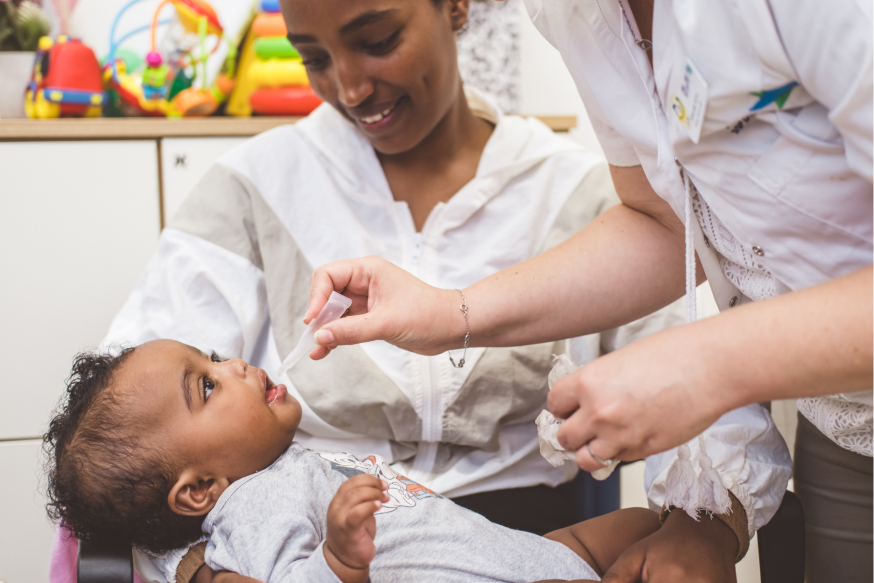The Vital Role of Vaccination for Infants and Children
When we bring a child into the world, our most important role is protecting them. One of the safest and most effective ways is by vaccinating them against diseases that may cause tremendous suffering, severe disability and even death. To understand the importance of vaccines, you should first learn about the body’s immune system and how it works, as well as how the different vaccines work and the advantages of preventive medicine in protecting our children’s health.
How the immune system works
When bacteria or viruses invade our body, they multiply and attack it. To fight the infection, the immune system activates several types of white blood cells that are designed to protect the body: Macrophages, B cells and T cells, which are responsible for retaining the body’s immunological memory. With them, after the initial exposure to the bacterium or virus, the body knows how to create antigens quickly.
How vaccines work
Vaccines create a simulation of a specific infection without causing the disease. Using the vaccine, the body learns to identify the bacterium or virus, and when exposed to the pathogen - the body knows how to develop antigens quickly, and prevent the disease or overcome it early.
Keep in mind
Keep in mind
Vaccines do not treat health issues that were already caused by infection by the virus or bacteria before the vaccination but can only prevent future contraction caused by strains included in the vaccine.
Natural immunity versus vaccines
Naturally developed immunity is not necessarily better than immunity created through vaccination since natural infections may cause serious and life-threatening complications. Even diseases that are considered relatively mild, such as chicken pox, may result in a serious disease that may require hospitalization.
As with any other medication, vaccines may cause side effects, most of which are mild and disappear within a short time. In contrast, many complications of disease that are prevented by the vaccine may be serious and even fatal.
Some of the diseases that are vaccinated against are spread around the world and may also reach Israel and endanger children who have not been vaccinated. For example, a measles outbreak in Israel occurred after patients who contracted it abroad arrived in the country and infected an unvaccinated local population.
The importance of preventive medicine
Vaccines are important in helping our children develop strong and stable immune systems at the earliest possible age, without becoming ill with diseases that can cause suffering, disability and even death. To protect them, children should be vaccinated according to the immunization schedule. The vaccines are given to children from the day they are born at the Family Care Center and later at school, free of charge.
Vaccines should be administered as soon as possible to protect against diseases. There are vaccines that can be given during pregnancy, such as the vaccine against whooping cough – so that the antibodies that develop in her body will be passed on through the placenta to the fetus, which will be protected after childbirth as well. The mother is also protected against diseases and cannot infect her newborn.
In addition to the immunization schedule, the Ministry of Health recommends vaccinating children with additional vaccines:

















